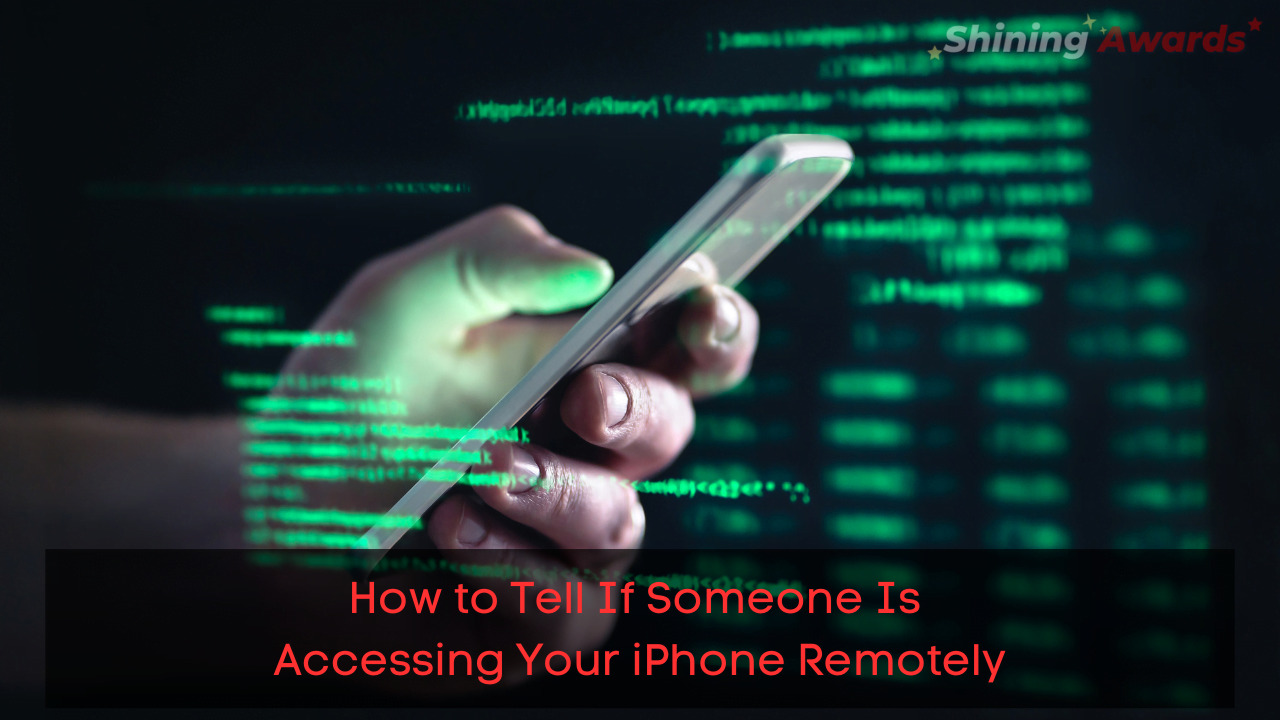How to Tell If Someone Is Accessing Your iPhone Remotely
How to Tell If Someone Is Accessing Your iPhone Remotely – As we continue to rely on our iPhones for everything from communication to banking, it’s essential to protect our devices from potential security breaches. One way this can happen is through remote access, where someone can take control of your iPhone without your knowledge. In this article, we’ll explore how to tell if someone is accessing your iPhone remotely and what steps you can take to prevent it from happening.

How to Tell If Someone Is Accessing Your iPhone Remotely
What Is Remote Access?
Remote access refers to the ability to access a computer or mobile device from a remote location. This could be done for legitimate purposes, such as tech support, or for malicious reasons, such as stealing sensitive information. Remote access can be achieved through a variety of methods, including malicious software, phishing scams, and social engineering.
Signs Your iPhone Is Being Accessed Remotely
Here are some signs that your iPhone may be accessed remotely:
- Unusual battery drain – If your iPhone’s battery is draining faster than usual, it could be a sign of malicious activity.
- Unexpected apps – If you notice apps on your iPhone that you didn’t download or don’t remember installing, it could be a sign of a security breach.
- Strange messages or calls – If you receive unexpected messages or calls from unknown numbers, it could be a sign of a compromised device.
- Slow performance – If your iPhone is running slower than usual or experiencing crashes, it could be due to malicious software running in the background.
Steps to Check for Remote Access
If you suspect that someone is accessing your iPhone remotely, there are several steps you can take to check:
- Check your iPhone’s recent activity – Go to Settings > General > Usage > Battery Usage to see a list of apps and services that have been using your iPhone’s battery. If you see any suspicious activity, it could be a sign of remote access.
- Check your iPhone’s network connections – Go to Settings > Wi-Fi to see a list of networks your iPhone has connected to. If you see any unfamiliar networks, it could be a sign of remote access.
- Check your iPhone’s installed apps – Go to Settings > General > iPhone Storage to see a list of apps installed on your iPhone. If you see any unfamiliar apps, it could be a sign of remote access.
- Check for malware – Install an anti-malware app from the App Store and run a scan to see if any malicious software is present on your iPhone.
Steps to Prevent Remote Access
Here are some steps you can take to prevent remote access to your iPhone:
- Keep your iPhone updated – Make sure to install the latest updates for your iPhone’s operating system and apps to stay protected against security vulnerabilities.
- Use a strong passcode – Use a six-digit passcode or a longer alphanumeric password to prevent unauthorized access to your iPhone.
- Enable two-factor authentication – Two-factor authentication adds an extra layer of security to your iPhone by requiring a code in addition to your password to log in.
- Avoid public Wi-Fi – Public Wi-Fi networks can be insecure, so avoid connecting to them whenever possible or use a VPN to encrypt your connection.
- Be cautious of suspicious messages or emails – Don’t click on links or download attachments from unknown sources, as they could contain malware.
Conclusion
Remote access to your iPhone can be a serious security threat, but there are steps you can take to protect yourself. By following the steps outlined in this article, you can check for remote access and prevent it from happening in the future.